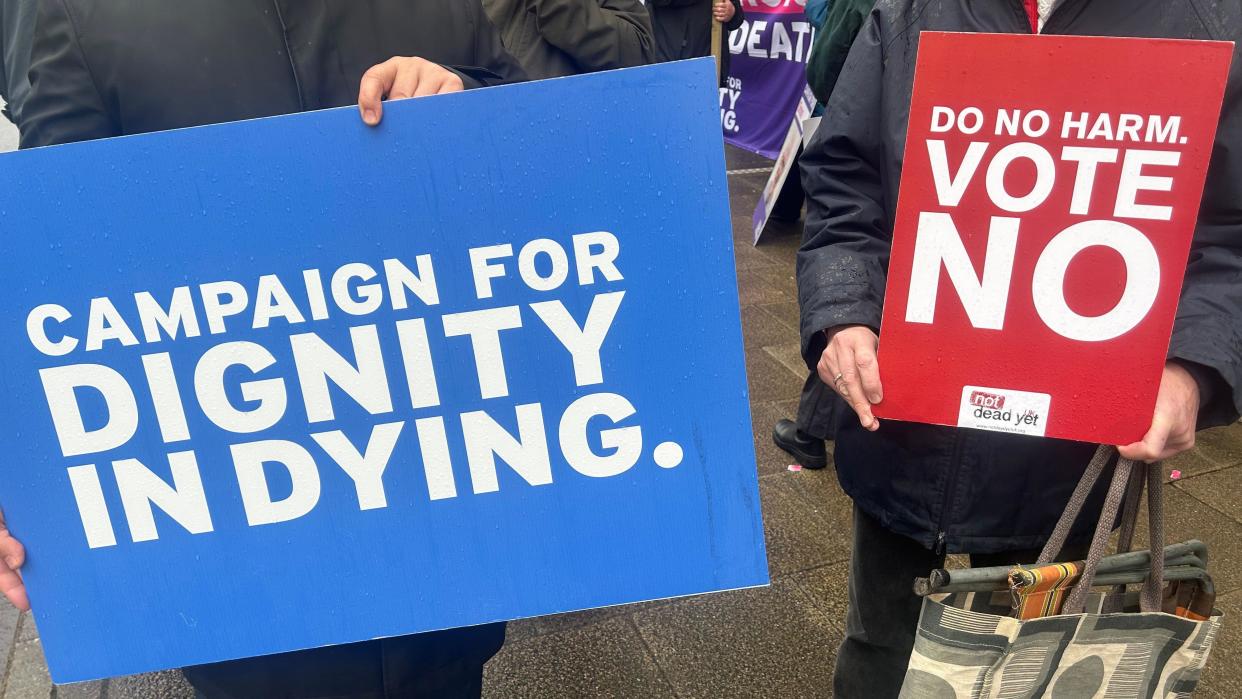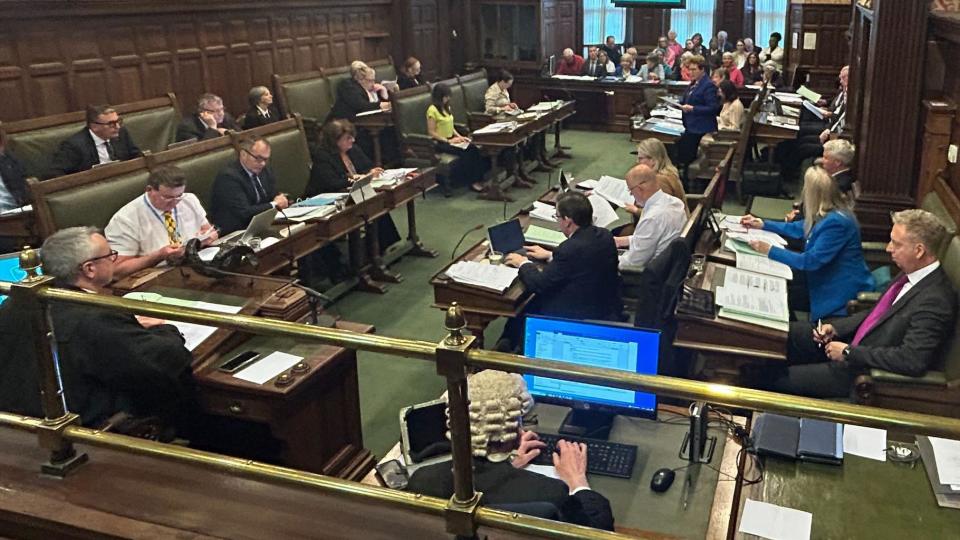Isle of Man moves closer to introducing assisted dying

A bid to prevent NHS staff from having a role in assisted dying has been rejected by members of the House of Keys as new laws moved forward on the Isle of Man.
An amendment to the Assisted Dying Bill 2023 by Kate Lord-Brennan MHK called for a licenced body or charity to be created to run a service, which would receive no government funding.
Alex Allinson MHK, who introduced the private member's bill to the Manx parliament, said it would have made the proposed bill unworkable.
Giving evidence to politicians, London-based hospital consultant and campaigner against assisted dying David Randall said he was "not convinced" that the legislation could be made safe for the most vulnerable.
'Pressure'
As the House of Keys resumed its debate of the clauses of the bill, MHKs backed changes that would restrict who could witness a declaration of intent and forbid doctors employed at the same surgery from countersigning the documents.
Ms Lord-Brennan put forward a new clause that would have prevented any staff employed in the island's health care service, Manx Care, from involvement in assisted dying or public funding being used to support it.
She said it was "clear" that the island's healthcare provider should not be involved in assisting people to die.
However, MHKs rejected that bid after concerns were raised it could create a two-tier system for those who could afford to pay to attend a private clinic.
Dr Allinson argued the proposed clause would make his bill unworkable as it would have prevented Manx Care from sharing patient records with any provider.

During five hours of debate, the focus also fell on the declaration a terminally ill person would have to make to prove their "clear and settled intention to end their life".
Dr Randall, along with Baroness Ilora Finlay, took questions from MHKs and expressed their opinions on issues including consent and coercion.
He told members, if introduced, the law would represent an "absolute shift in medical practice and ethics" and he opposed the bill as he felt it was his "duty" to protect people who could be most vulnerable.
"I think you can make it safer, [but] I am not convinced in my conscience that you can make it safe 100% safe," he said.
While a similar law in Canada had been passed "with the best of intentions", challenges in its courts had led to it being extended to people with some mental health conditions who were not terminally ill.
Baroness Finlay, a doctor and professor of palliative medicine, told MHKs that she had concerns over whether doctors should be responsible for guaranteeing that anyone seeking to end their lives was not being coerced into it as there were questions they "cannot ask".
Agreeing there could be situations that would lead to "pressure" being applied to expand the law beyond those who were terminally ill, she urged MHKs to "listen to your own medical society", which has opposed the bill.
However, Dr Allinson argued the proposed laws were not similar to those in Canada but took their model "very much" from the attempt by Lord Falconer to introduce legislation in the UK.
Further consideration of clauses of the bill is expected to take place on 11 June.
Why not follow BBC Isle of Man on Facebook and X? You can also send story ideas to IsleofMan@bbc.co.uk

